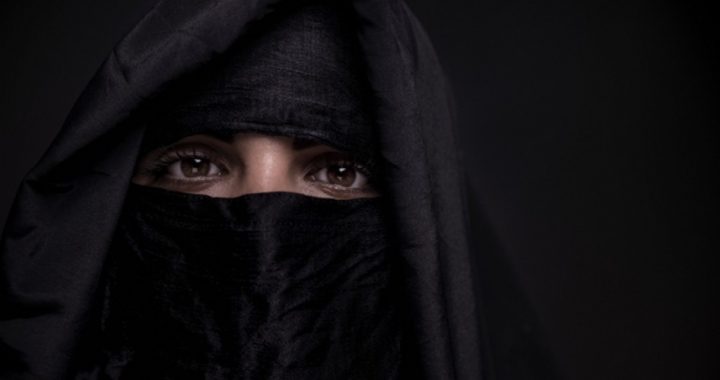
Although the massive influx of Muslims into Europe is leading to the Islamization of huge swaths of the continent, there is also growing resistance to the cultural sea change that is occurring there.
Six countries have banned the Muslim face coverings, striking a blow against a key weapon of Islam’s aggressive cultural colonization, and some cities and towns have enacted local bans.
The bans seem to declare that Europeans will not watch the continued imposition of Islam’s 7th-century fashion hegemony.
Denmark the Latest
As The Washington Post reported Thursday, Denmark is the latest country to say no what Italian journalist Oriana Fallaci, the late leftist foe of Islam, called a “stupid medieval rag.”
Noted The Post, “Despite protests in the country’s capital, police have started enforcing the law in earnest. On August 3, a 28-year-old wearing the niqab, which covers the entire body except the eyes, was attacked by another Danish woman who tried to pull her veil off, The Guardian reported. Police fined the Muslim woman $156.”
Legislation around full-face veils has grown increasingly common in Europe, particularly in the past three years. Six countries have now passed nationwide laws that partially or fully ban face veils in public places. The latest is the Netherlands, which voted in June to partially ban face veils in locations such as schools and hospitals, but not on public streets.
The countries that have enacted the bans are Austria, Belgium, Bulgaria, Denmark, France, and The Netherlands. Fines for wearing one of the hideous symbols of misogyny range from 100 euros in Bulgaria to 400 in The Netherlands.
The protest over the Muslim woman’s arrest occasioned the usual caterwauling.
Hundreds of protesters, The Guardian reported, “many wearing the niqab veil or the body-length burqa, began a march from the central district of Norrebro to Bellahoj police station on the outskirts of the city.”
“We need to send a signal to the government that we will not bow to discrimination and a law that specifically targets a religious minority,” said Sabina, 21, who asked that her full name not be used.
She is one of between 150 and 200 Muslim women — 0.1% of those in the country — who wear either the niqab or the burqa on a daily basis. Muslims account for about 5% of Denmark’s population of 5.7 million. …
“If the intention of this law was to protect women’s rights, it fails abjectly,” said Fotis Filippou, Amnesty International’s deputy director for Europe. “Instead, the law criminalises women for their choice of clothing, making a mockery of the freedoms Denmark purports to uphold.”
Why the Burqa Is Being Banned
Politicians, the Post reported, give two main reasons for the bans. First, they are incompatible with European ideas about the freedom of women, and second, they could hide the face of a terrorist.
Last year, when Germany banned burqas for certain military and government officials, Interior Minister Thomas de Maiziere said the frightening garb had no place in the land of Bach and Goethe.
“We attach importance to some social habits not because they are the substance but rather the expression of a certain attitude,” he wrote in the Bild am Sonntag newspaper
We introduce ourselves by our name. We shake hands to greet each other. At demonstrations there is a ban on face coverings. “Show your face” — that is an expression of the way we live together in our democracy. In our daily lives it is important that we be able to see whether the person we talk to shows a friendly or a sad face. We are an open society. We show our face. We don’t do burkas.
“We are a nation,” he wrote, “that prizes culture.”
In 2009, French president Nicolas Sarkozy told French legislators that Islamic accouterments are unwelcome in what used to be known as The Eldest Daughter of the Church.
The problem of the burka is not a religious problem, it’s a problem of liberty and women’s dignity. It’s not a religious symbol, but a sign of subservience and debasement. I want to say solemnly, the burka is not welcome in France. In our country, we can’t accept women prisoners behind a screen, cut off from all social life, deprived of all identity. That’s not our idea of freedom.
According to The Guardian, “there was raucous applause from MPs and senators.”
In 2011, France banned the burqa and other full-face veils.
The question is whether Europe will be pressed to the wall and forced to adopt the simpler solution: a ban on Muslim “refugees” and immigration.
Photo: PeteSherrard/iStock/Getty Images Plus



